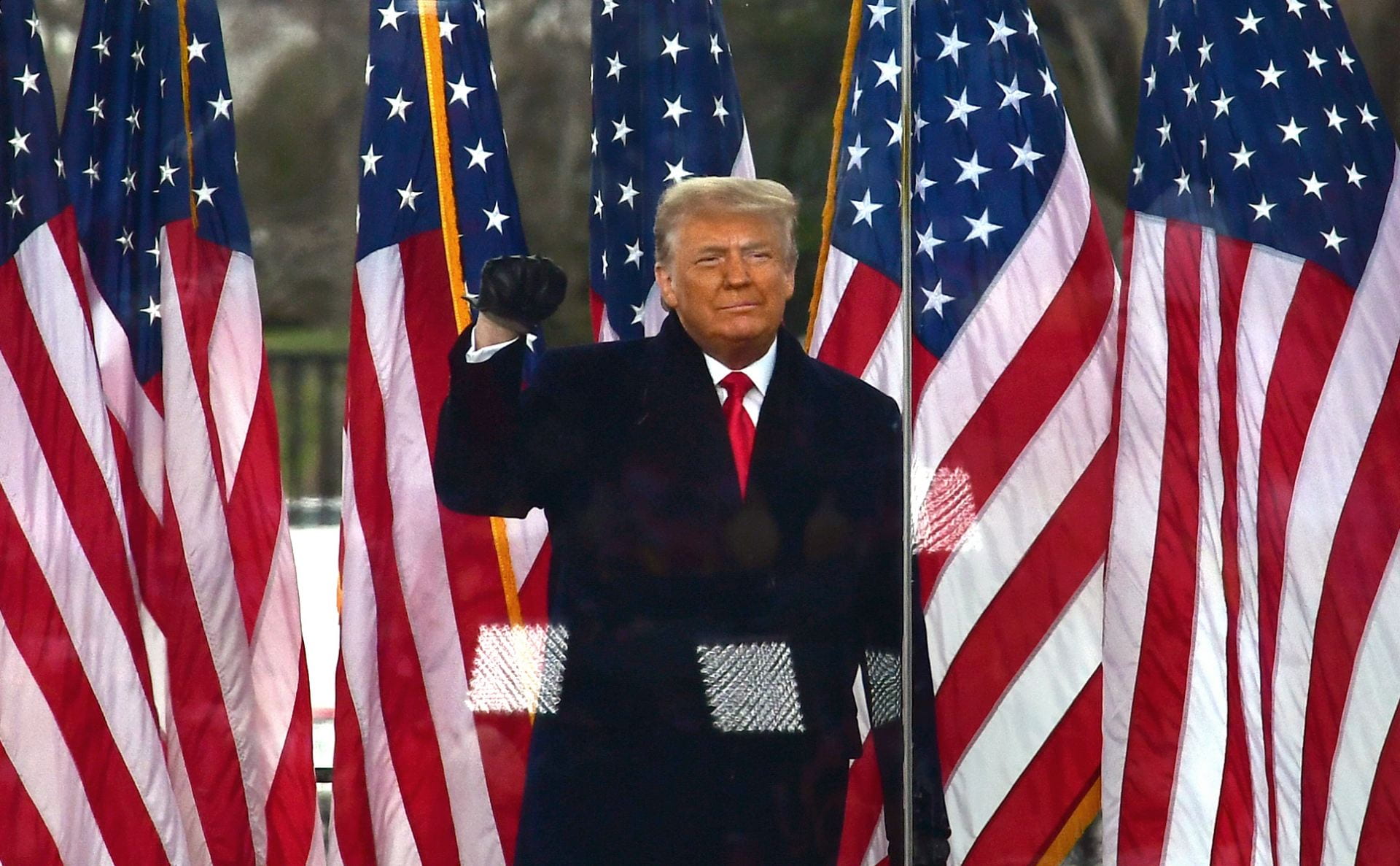
President Donald Trump at the Save America March where he spoke before a mob attacked the U.S. Capitol building, Wednesday, Jan. 6. Credit: Carol Guzy/ZUMA Wire via TNS
President Donald Trump made history Wednesday as the first president to be impeached twice.
The U.S. House of Representatives voted to impeach Trump for inciting an insurrection at the U.S. Capitol Jan 6. The articles of impeachment also mention Trump making baseless claims about widespread election fraud and asking the Georgia secretary of state to “find” votes to overturn the election results in support of the insurrection charge. With seven days left in Trump’s term, Senate Majority Leader Mitch McConnell said he will not convene the Senate for a trial before Inauguration Day.
Although the insurrection on the Capitol is on the forefront of most Americans’ minds, Ruth Colker, a professor in constitutional law at Ohio State, said Trump’s Jan. 2 phone call to Georgia Secretary of State Brad Raffensperger is one of the most important legal grounds for impeachment. She said asking the secretary of state to find votes is a direct violation of the Constitution that the president swore to uphold.
“The public has been appalled by the Jan. 6 riot and I can understand why, but in terms of his legal exposure I think it’s actually greater for what happened in Georgia,” Colker said.
She said there is a difference between legal grounds for criminal charges and legal grounds for impeachment. Although refusing to concede and transfer power is not a criminal offense, it is an impeachable offense because it violates the Constitution.
Paul Beck, professor emeritus of political science at Ohio State, said the invasion of the Capitol is a turning point for Republican support of this impeachment attempt compared to the December 2019 impeachment. He said if the Trump administration continues to try to derail the Biden administration, he expects even more Republicans will condemn the president.
Ten House Republicans voted for impeachment Wednesday, including former Ohio State wide receiver Anthony Gonzalez, who represents Ohio’s 16th District. No House Republicans supported the first impeachment.
The House may wait up to 100 days to send the article of impeachment to the Senate in an effort to not impede President-elect Joe Biden’s transition, including coronavirus relief and confirmation of his cabinet and judicial nominations.
Beck said that although a conviction after Jan. 20 would not remove Trump from office, it could prevent him from holding public office again in the future.
The Senate has not begun the confirmation of Biden’s cabinet picks, a process that Beck said would normally be underway by this point to ensure a smooth transition to the next administration. He said this may be because some Republican senators did not want to cross Trump by formally recognizing Biden as the President-elect through the confirmation process.
If Trump is convicted, Colker said he isn’t automatically ineligible to run for office again. A second vote by the Senate, requiring only a majority rather than two-thirds, would disqualify Trump from holding office again.
The Senate, which holds the impeachment trial, will look different following the Jan. 5 Georgia Senate runoff. Control over the Senate shifted when Democrats Jon Ossoff and Raphael Warnock unseated Republican incumbent challengers David Perdue and Kelly Loeffler. Once Georgia certifies the election results and Ossoff and Warnock take their seats by Jan. 22, Democrats will hold a majority in the Senate with Vice President-elect Kamala Harris’ tiebreaking vote.
Still, a Democratic majority in the Senate will not seal the outcome of the trial, as the Constitution requires two-thirds of the Senate to convict the president. Beck said some Republican senators may abstain from voting, decreasing the number of Republican votes needed to convict.
Colker said this impeachment begs the question of what the basic standards Americans should expect of a president, especially with regards to an orderly transition of power from one administration to the next. Beck said it’s important to set a precedent that a president cannot get away with offenses such as challenging the results of an election or inciting an insurrection.
“One would hate to see four years from now or eight years from now another president in office, trying to deny the transition to the leader of the other party, trying to affect the electoral process itself and even fomenting the kind of violence that we saw in the riot of the Capitol,” Beck said.


